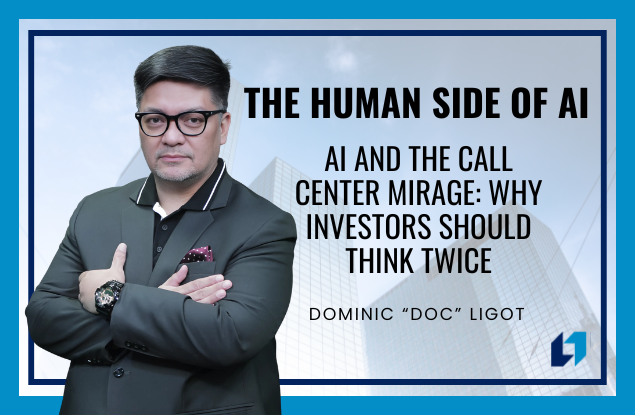For more than a decade, each new wave of artificial intelligence hype has promised an imminent revolution in how we work. Call centers, in particular, are often portrayed as ground zero for mass automation, where human agents will be replaced wholesale by AI bots. But as investors evaluate this narrative, it’s important to separate signal from noise. The truth is that customer service remains one of the hardest domains for AI to conquer, and recent stumbles across the tech landscape should give us pause before buying into the “AI eats call centers” storyline.
The Human Element Cannot Be Automated Away
Customer service is about more than resolving tickets. It’s about empathy, reassurance, and contextual understanding, qualities that no AI has mastered. Whether it’s a billing dispute or a technical outage, customers often want the reassurance of a human voice. That human touch doesn’t just drive satisfaction; it underpins brand trust, something shareholders know is far harder to rebuild than to maintain.
When “AI” Means Humans Behind the Curtain
We’ve already seen companies oversell automation. Amazon Fresh’s much-touted AI-powered stores, for example, still required teams of human workers in India to monitor customers via CCTV and intervene when algorithms failed. Similarly, Del Taco’s “AI-driven” drive-through ordering system turned out to be heavily reliant on offshore call center staff to smooth over misfires. The pattern is clear: behind the sheen of automation, human labor remains indispensable.
Costly Mistakes and PR Disasters
Even the most sophisticated AI systems can be manipulated or confused. General Motors learned this the hard way when its chatbot was tricked into offering a Chevrolet Tahoe for $1. What seemed like an innocuous experiment turned into a viral embarrassment, illustrating the financial and reputational risks of deploying immature AI too aggressively. These errors aren’t just bugs, they represent liability.
Investor Red Flags: Replit, Nate, Klarna
The problem isn’t confined to customer service. Across the broader AI ecosystem, investors have already witnessed a string of blowups that expose the fragility of AI business models. Replit’s high-profile pivot and subsequent backlash showed how overpromising erodes credibility. Nate, a startup that billed itself as an AI-powered shopping concierge, collapsed amid accusations of smoke-and-mirrors automation and outright fraud. Klarna, too, found itself under fire for its AI-driven customer service tools, which frustrated users and raised regulatory concerns about transparency and bias. For financial backers, these episodes highlight a recurring pattern: AI startups lean heavily on human labor, obscure their limitations, and struggle when those limitations are exposed.
The Hybrid Future
Rather than betting on full automation, the smarter investment thesis is hybridization. AI excels at repetitive, low-complexity tasks, triaging inquiries, surfacing knowledge bases, or routing calls. But the real value comes when human agents step in for exceptions, escalation, and emotional support. This “AI + human” model doesn’t eliminate jobs; it reshapes them, creating supervisory, oversight, and quality-assurance roles. That’s not just a workforce story, it’s an efficiency and resilience story investors should pay attention to.
Bottom Line
AI is not on the brink of wiping out call centers. It is, however, changing them, and not always in the ways investors might expect. The most resilient companies will use AI as a complement to, not a replacement for, human service. And as the Replit, Nate, and Klarna episodes show, the cost of mistaking hype for reality can be significant. For financial stakeholders, the takeaway is simple: be wary of automation narratives that downplay the enduring, and irreplaceable, role of human intelligence in customer service.
Dominic “Doc” Ligot is one of the leading voices in AI in the Philippines. Doc has been extensively cited in local and global media outlets including The Economist, South China Morning Post, Washington Post, and Agence France Presse. His award-winning work has been recognized and published by prestigious organizations such as NASA, Data.org, Digital Public Goods Alliance, the Group on Earth Observations (GEO), the United Nations Development Programme (UNDP), the World Health Organization (WHO), and UNICEF.
If you need guidance or training in maximizing AI for your career or business, reach out to Doc via https://docligot.com.
![]()



